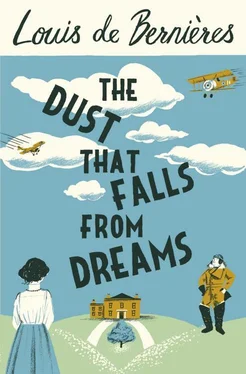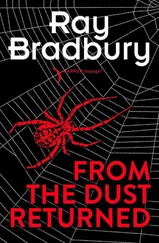‘Well, shrouds have no pockets. And you’ll be needing it. If you don’t mind me asking, when is the happy day approximately?’ asked Daniel.
‘Happy day? How did you know?’ asked Millicent, quite shocked.
‘There are signs, you know,’ observed Daniel. ‘I wasn’t born yesterday.’
‘Don’t tell the mistress, sir,’ pleaded Millicent. ‘She’ll make me leave as soon as she notices. I need to work as long as I can. I’m dead lucky she let me stay on after I was married. You’re expected to go, aren’t you?’
‘Well, not these days. People are desperate to hang on to a good servant, children or not. I do understand, though. Mum’s the word. Even so, times are changing, aren’t they? I expect she would keep you on, you know.’
‘Mr Miller and me are thinking of going to Canada,’ said Millicent. ‘It’s a lovely place to be a copper, and I could have a little shop. It’s not so cold out west, they say. He wants to be a Mountie, and he can’t even ride yet!’
‘Hmm,’ said Daniel, ‘that’s the kind of life that would appeal to me too. But I rather like the idea of being a bush pilot. I do hope it works out for you. I don’t suppose you want to be a tweeny all your life, do you? And I can’t see you becoming a pug, can you?’
Millicent laughed. ‘No, sir, I’d make a very poor pug. I’m not bossy and disapproving, and I’m much too cheerful.’
‘Well, I wish you and Mr Miller the best of luck. I wish you a very happy life, the happiest possible.’
‘You too, sir,’ said Millicent, and she watched him wistfully until he reached the bottom of the stairs, on his way to leave a thank-you present for Cookie. Still, she could always boast about having known an aviation ace, and say what a gentleman he was.
Rosie and Daniel left in spring, from Southampton, in the company of a variety of other folk on commercial or colonial business. Daniel had his combination crated up on the docks and loaded into the hold. Having given up aeroplanes, his loyalty had altogether been transferred to his Henley, and he would not have wished to go anywhere without it. The sensation of speed would never reach the incomparable pleasure of flying a scout two feet above the ground, but it was sometimes enough to be reminded of it. During the voyage he liked to go below and check that his combination was still content, running his fingers along the packing case as if he were caressing a horse.
Rosie and Daniel had already made their farewells to Mme Pitt, having spent the previous weekend at Partridge Green. Both of them had received another lecture, which they took in good part. Back at The Grampians, Rosie had deliberated for a long time in her room, and had eventually decided to pack neither Ash’s letters nor her madonna and child. She did, however, decide to take with her the notebook in which she had copied out the most tender parts of his letters, but then she forgot to put it in her trunk.
Rosie went through the blue door to say goodbye to Mr and Mrs Pendennis. She found them in their drawing room, reading quietly. Rosie saw how they had aged, how pale and thin they had both become, and had a small revelation. She suddenly realised that many thousands of others had suffered far worse grief than she had. It occurred to her that there had been a kind of selfishness in her own mourning. ‘I should have come round to see them more often,’ she thought.
‘I’ve come to say goodbye,’ she said, as they stood to welcome her.
Wordlessly, Mrs Pendennis came and put her arms around her. ‘Oh, Mamma, don’t cry,’ said Rosie, trying to suppress her own tears.
‘Well,’ said Mrs Pendennis, ‘all these years … you’ve been our daughter too, you know. We’ll miss you so much. You will write?’
‘Of course, Mamma. Every week at the very least.’
‘It’ll be very exciting for you,’ said Mr Pendennis. ‘I do hope it’s a great success. May I hug you too? I am American, after all.’
Mrs Pendennis took her hand. ‘Come, I’ve something to show you.’
She led Rosie out into the hall and gestured to the wall that faced the stairway. There hung a life-size portrait of their sons. Ashbridge was standing on the left, leaning, as it were, against the frame. His pose was casual and his smile ironical, and his right hand was on Sidney’s shoulder. He looked directly back at Rosie as she gazed on him. Sidney sat on a reversed chair, with his chin resting on his arms. He was looking into the distance, as if into eternity. Albert was standing on his right, his left hand on his brother’s shoulder, but glancing towards Ashbridge. All of them were in the service dress of the Royal Horse Artillery, with their forage caps at slightly irreverent angles. In the background was a landscape, showing a steep hill in the distance, with three tiny crosses at its summit.
Rosie was stunned by it. She gazed, unable to speak. It was almost too perfect, easily as good as a Sargent.
‘The artist did it from photographs,’ said Mrs Pendennis. ‘John and I come out here and stand for hours and hours. You can almost imagine we have the boys back in the house.’
‘It’s the first thing we see when we come downstairs in the morning,’ said Mr Pendennis.
‘Why isn’t it finished?’ asked Rosie, pointing to the bottom right-hand corner, where the confident detail of the rest of the picture seemed to break down into a thin, messy wash of broad dark green strokes.
‘It was the artist’s idea,’ said Mr Pendennis. ‘She thought the picture should be uncompleted because the boys’ lives weren’t completed. We didn’t like it at first —’
‘— But we gave in,’ said his wife. ‘She wasn’t the kind of artist you can argue with. And now we think it’s just right, and we’re glad we gave in.’
‘She?’ said Rosie, moving forward to look at the signature. ‘Gaskell!’ she exclaimed. ‘She certainly kept quiet about this! But of course I haven’t seen her for ages.’
‘We’ve never met anyone quite like her,’ said Mrs Pendennis. ‘In fact we can’t make her out at all. What extraordinary green eyes! But doesn’t she paint like an angel? She collected photographs from us, and then six months later she arrived with this. She’s got them all down to a T.’
Mr Pendennis said, ‘We’ve no one to leave it to. Would you like to have it? After we’ve gone?’
‘I’d love it,’ said Rosie, ‘but I think it wouldn’t be very kind to Daniel. I know we were all Pals, but I think, you know, it might come between us. I will ask him, and see what he thinks, but it might be better to leave it to one of the other Pals, then I can just go and look at it sometimes. Why don’t you leave it to Christabel?’
‘I think you’re quite right to ask Daniel,’ said Mrs Pendennis. ‘You know, John and I very much want to see you and Daniel happy together. Making a success of it.’ She gestured up at Ashbridge. ‘It’s what he would have wanted. Ashbridge wasn’t selfish. He didn’t have a selfish bone in his body.’
Rosie said nothing, but gazed at the face of Ash in the portrait. He looked back with quizzicality and steady sympathy.
Now they all stood in the driveway of The Grampians as Wragge warmed up the AC, and Rosie clung to her father and wept, saying, ‘Please take care, Daddy, please look after yourself, won’t you?’
‘Rosie bairn,’ he said, ironically donning his strongest Scottish accent, ‘I’ve nae plans to die afore ye come back. Dinnae fret. Go forth and have some fun wi’ yoursel’.’
Mrs McCosh gave Daniel a brown paper bag. ‘I’ve decided that from now on I am going to cook the bread. This is my first loaf. I would very much like you to have it.’
Daniel took it and looked inside. It was presentable and appetising. ‘How very kind,’ he said, touched by the gift, despite its eccentricity.
Читать дальше












